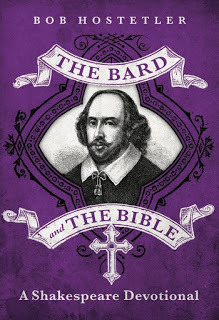Your First Writing Assignment
Today I'm excited to welcome a man I greatly admire, Bob Hostetler. He's an author beyond compare, as well as incredible conference speaker. He's also a fellow blogger on Guideposts.org. But I asked him here today for two reasons. Number one, because I want you to have a chance to learn from him. And number two, because he has a fabulous book out and I wanted you to hear about it. So be sure to give him a warm, Write Conversation welcome!
Your First Writing Assignmentby Bob Hostetler @BobHoss
 If your writing doesn’t start with this practice, you’re cheating yourself
If your writing doesn’t start with this practice, you’re cheating yourself
Lauren Winner, author of the wonderful memoirs, Girl Meets God and Mudhouse Sabbath, tells about an experience she had when a writing student of hers showed her part of a memoir that was astounding, far better than this student’s usual writing. Winner asked the student what had transformed her writing over the course of just a few months.The student said she’d gotten stuck on a major piece she was writing and told her priest about it.
The priest said, “Have you prayed about this?”
She hadn’t.
So she did.
And the quality of her writing soared.
Winner says, before that experience, and before saw with her own eyes the transformation in that student’s writing, “It never occurred to me . . . that there might be a connection” between prayer and writing. But there totally is.
Fifteen or so years ago, I thought I was totally spent as a writer. I’d been through a three-year process of revision and revulsion on one book that had left me doubting my ability, and drained of all enthusiasm for writing.
So I prayed.
I do that when I get desperate . . . and there’s nothing good on T.V.
 And God sent me manna from heaven—in the form of an assignment to work on a project called The Prayer Bible. For the next couple months, I spent my workdays praying through the second half of the Old Testament and recording many of those prayers as prayer prompts for that Bible’s marginalia. It was a process that not only revived me, and stoked my prayer life; I believe it saved my writing ministry.
And God sent me manna from heaven—in the form of an assignment to work on a project called The Prayer Bible. For the next couple months, I spent my workdays praying through the second half of the Old Testament and recording many of those prayers as prayer prompts for that Bible’s marginalia. It was a process that not only revived me, and stoked my prayer life; I believe it saved my writing ministry.
It did something else: It changed the writing process for me. It made prayer an indispensible part of the writing process for me, so much so, in fact, that I don’t know how I ever wrote a thing before I came, like Lauren Winner, to see the absolute connectedness that exists between prayer and writing.
It shouldn’t have been a surprise, of course. God was talking about writing as much as anything when he spoke to Zerubbabel through Zechariah: “Not by might nor by power, but by my Spirit,' says the Lord Almighty” (Zechariah 4:6, NIV).
If I truly believed that, why would I try to write anything in my own strength, apart from prayerful dependence on God? In recent years, I have come to depend on God through prayer in my daily life, and so I have come to depend on God through prayer in my writing life.
 I pray before I write. I pray while I write. And then I pray after I write that God will even further transform my offering through the work of godly publishers, editors, designers, artists, and so on.
I pray before I write. I pray while I write. And then I pray after I write that God will even further transform my offering through the work of godly publishers, editors, designers, artists, and so on.
I pray, not to change God, or to change others, but to change me. I pray for wisdom to manage my time wisely, for discipline to apply my mind to my writing and my butt to the chair. I pray for my memory (at least until I forget). For some writing projects, I’ve assembled a prayer team to support my writing with their prayers, and I’ve tried to keep them up-to-date via email.
If you are wise (at least as wise as me, which is not a high bar at all), you will make prayer your first writing assignment every day. Before you sharpen your pencil or turn on your computer, before you outline, before you jump into a writing exercise or research task, pray. Pray before you write, as you write, after you write. Pray for self-awareness, for focus, for inspiration, for protection. Pray to hear God clearly and to respond to him fully. Pray (as I often do) to write better than you are capable of writing.
You might want to put a Post-It note on your computer screen that reads, “Have you prayed about this?” You might want to journal your prayers. You might learn to pray God’s Word, the process that rescued my writing.
If you need help in this area, you might add Richard Foster’s Prayer: The Heart’s True Home to your reading (or Philip Yancey’s Prayer or Robert Benson’s Living Prayer, or one of the volumes of Phyllis Tickle’s The Divine Hours, which can help you pray the daily office). You might make an annual prayer retreat to a monastery or retreat center. You might do all of those things or none of them.
But if prayer is not a central part of your process, an indispensable part of your writing, your first writing assignment every day, then please believe men when I say you’re cheating your readers, you’re cheating your editors, you’re cheating God. Most of all, of course, you’re cheating yourself.
TWEETABLESIf #prayer isn't part of your #writing process, you're cheating your readers - @BobHoss (Click to Tweet)
Your FIRST #Writing Assignment - @BobHoss on @EdieMelson (Click to Tweet)
 The Bard and The Bibleby Bob Hostetler
The Bard and The Bibleby Bob Hostetler
The Bard and the Bible pairs 365 short passages from the King James Version of the Bible with lines from Shakespeare’s plays and sonnets. The poetry of the Bard of Stratford-on-Avon and the power of God’s Word will enrich the reader’s understanding and appreciation of both, and provide new ways to encounter and respond to God through His Word.
A year of daily readings in both Shakespeare and the King James Version yields intellectual stimulation and spiritual inspiration for readers, enlarging their minds as it changes their lives.
 Bob Hostetler is an award-winning writer, editor, and speaker from southwestern Ohio. His books include the award-winning Don’t Check Your Brains at the Door (co-authored with Josh McDowell) and The Red-Letter Prayer Life. He is also the author of the iPhone/iPad app, 31 Ways to Pray for Your Children. His next book, The Bard and the Bible (A Shakespeare Devotional), will be released in August (it can be pre-ordered now).
Bob Hostetler is an award-winning writer, editor, and speaker from southwestern Ohio. His books include the award-winning Don’t Check Your Brains at the Door (co-authored with Josh McDowell) and The Red-Letter Prayer Life. He is also the author of the iPhone/iPad app, 31 Ways to Pray for Your Children. His next book, The Bard and the Bible (A Shakespeare Devotional), will be released in August (it can be pre-ordered now).
Your First Writing Assignmentby Bob Hostetler @BobHoss
 If your writing doesn’t start with this practice, you’re cheating yourself
If your writing doesn’t start with this practice, you’re cheating yourselfLauren Winner, author of the wonderful memoirs, Girl Meets God and Mudhouse Sabbath, tells about an experience she had when a writing student of hers showed her part of a memoir that was astounding, far better than this student’s usual writing. Winner asked the student what had transformed her writing over the course of just a few months.The student said she’d gotten stuck on a major piece she was writing and told her priest about it.
The priest said, “Have you prayed about this?”
She hadn’t.
So she did.
And the quality of her writing soared.
Winner says, before that experience, and before saw with her own eyes the transformation in that student’s writing, “It never occurred to me . . . that there might be a connection” between prayer and writing. But there totally is.
Fifteen or so years ago, I thought I was totally spent as a writer. I’d been through a three-year process of revision and revulsion on one book that had left me doubting my ability, and drained of all enthusiasm for writing.
So I prayed.
I do that when I get desperate . . . and there’s nothing good on T.V.
 And God sent me manna from heaven—in the form of an assignment to work on a project called The Prayer Bible. For the next couple months, I spent my workdays praying through the second half of the Old Testament and recording many of those prayers as prayer prompts for that Bible’s marginalia. It was a process that not only revived me, and stoked my prayer life; I believe it saved my writing ministry.
And God sent me manna from heaven—in the form of an assignment to work on a project called The Prayer Bible. For the next couple months, I spent my workdays praying through the second half of the Old Testament and recording many of those prayers as prayer prompts for that Bible’s marginalia. It was a process that not only revived me, and stoked my prayer life; I believe it saved my writing ministry.It did something else: It changed the writing process for me. It made prayer an indispensible part of the writing process for me, so much so, in fact, that I don’t know how I ever wrote a thing before I came, like Lauren Winner, to see the absolute connectedness that exists between prayer and writing.
It shouldn’t have been a surprise, of course. God was talking about writing as much as anything when he spoke to Zerubbabel through Zechariah: “Not by might nor by power, but by my Spirit,' says the Lord Almighty” (Zechariah 4:6, NIV).
If I truly believed that, why would I try to write anything in my own strength, apart from prayerful dependence on God? In recent years, I have come to depend on God through prayer in my daily life, and so I have come to depend on God through prayer in my writing life.
 I pray before I write. I pray while I write. And then I pray after I write that God will even further transform my offering through the work of godly publishers, editors, designers, artists, and so on.
I pray before I write. I pray while I write. And then I pray after I write that God will even further transform my offering through the work of godly publishers, editors, designers, artists, and so on. I pray, not to change God, or to change others, but to change me. I pray for wisdom to manage my time wisely, for discipline to apply my mind to my writing and my butt to the chair. I pray for my memory (at least until I forget). For some writing projects, I’ve assembled a prayer team to support my writing with their prayers, and I’ve tried to keep them up-to-date via email.
If you are wise (at least as wise as me, which is not a high bar at all), you will make prayer your first writing assignment every day. Before you sharpen your pencil or turn on your computer, before you outline, before you jump into a writing exercise or research task, pray. Pray before you write, as you write, after you write. Pray for self-awareness, for focus, for inspiration, for protection. Pray to hear God clearly and to respond to him fully. Pray (as I often do) to write better than you are capable of writing.
You might want to put a Post-It note on your computer screen that reads, “Have you prayed about this?” You might want to journal your prayers. You might learn to pray God’s Word, the process that rescued my writing.
If you need help in this area, you might add Richard Foster’s Prayer: The Heart’s True Home to your reading (or Philip Yancey’s Prayer or Robert Benson’s Living Prayer, or one of the volumes of Phyllis Tickle’s The Divine Hours, which can help you pray the daily office). You might make an annual prayer retreat to a monastery or retreat center. You might do all of those things or none of them.
But if prayer is not a central part of your process, an indispensable part of your writing, your first writing assignment every day, then please believe men when I say you’re cheating your readers, you’re cheating your editors, you’re cheating God. Most of all, of course, you’re cheating yourself.
TWEETABLESIf #prayer isn't part of your #writing process, you're cheating your readers - @BobHoss (Click to Tweet)
Your FIRST #Writing Assignment - @BobHoss on @EdieMelson (Click to Tweet)
 The Bard and The Bibleby Bob Hostetler
The Bard and The Bibleby Bob HostetlerThe Bard and the Bible pairs 365 short passages from the King James Version of the Bible with lines from Shakespeare’s plays and sonnets. The poetry of the Bard of Stratford-on-Avon and the power of God’s Word will enrich the reader’s understanding and appreciation of both, and provide new ways to encounter and respond to God through His Word.
A year of daily readings in both Shakespeare and the King James Version yields intellectual stimulation and spiritual inspiration for readers, enlarging their minds as it changes their lives.
 Bob Hostetler is an award-winning writer, editor, and speaker from southwestern Ohio. His books include the award-winning Don’t Check Your Brains at the Door (co-authored with Josh McDowell) and The Red-Letter Prayer Life. He is also the author of the iPhone/iPad app, 31 Ways to Pray for Your Children. His next book, The Bard and the Bible (A Shakespeare Devotional), will be released in August (it can be pre-ordered now).
Bob Hostetler is an award-winning writer, editor, and speaker from southwestern Ohio. His books include the award-winning Don’t Check Your Brains at the Door (co-authored with Josh McDowell) and The Red-Letter Prayer Life. He is also the author of the iPhone/iPad app, 31 Ways to Pray for Your Children. His next book, The Bard and the Bible (A Shakespeare Devotional), will be released in August (it can be pre-ordered now).
Published on May 07, 2016 01:00
No comments have been added yet.



